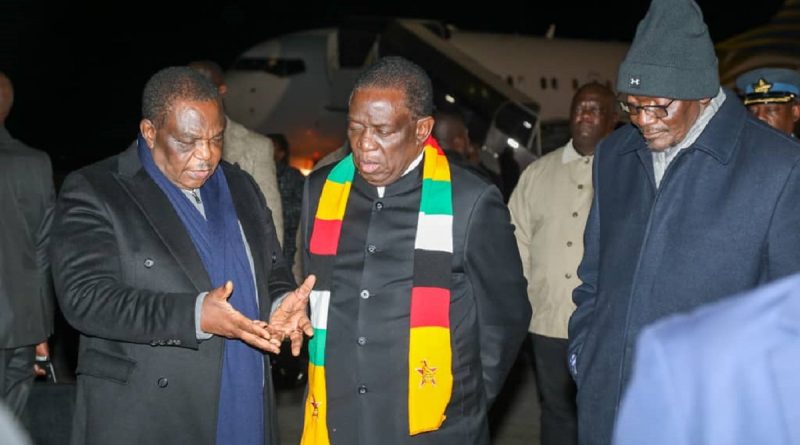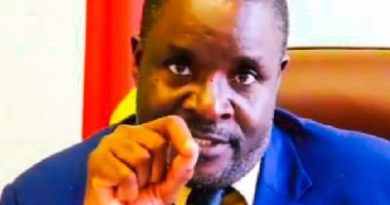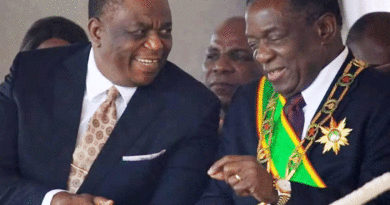Ever wondered why Chiwenga has to receive Mnangagwa late at night whenever he comes from international trips? Well, his spokesperson has explained
ORAL reports from senior politicians and journalists will tell you that in the 1990s, late liberation war hero Eddison Zvobgo once refused to come out of bed to welcome back late President Robert Mugabe, who was set to arrive in the wee hours of one winter morning at the then Harare International Airport from one of his many international trips.
Although Zvobgo was never Mugabe’s deputy, it was common practice that a select number of Ministers, Vice President(s) would always welcome him back from these trips.
Videos of high-ranking government officials lined up on one side with Mugabe shaking hands with each one of them, fresh from disembarking an Air Zimbabwe plane, are still etched in the memories of many.
The practice, interpreted as some power flexing opportunity by most Zimbabweans, has been explained by President Emmerson Mnangagwa’s spokesperson, George Charamba.
Many would have wondered why Mugabe did not just disembark and head straight home, be it to his fancy Blue Roof or State House, when he arrived late or too early.
Apparently, it is protocol for an Acting President to send off and receive the President whenever they leave.
Whoever would have been named Acting President has to physically be at the President’s point of exit and entry for a tradition that had remained unknown, unasked and unexplained up until now.
“The law of the land spells out who acts in place of the Head of State when he is away and out of the country for whatever reason. The Head of State is required by the same law to designate the person who stands in his place,” said Charamba on X in response to questions around Chiwenga’s decision to welcome Mnangagwa late at night on his return from Equatorial Guinea, Japan and Algeria.
“The person so designated is required to be at the point of exit, which is the port at which the extant Head of State leaves the country. So important is this procedure that the person designated has to be physically present, or else the Head of State may not leave the country.
“The port of exit is that point where the sitting Head of State hands over instruments of power to the character chosen to act. This is why the Acting character actually gets saluted by the command, led by the Commander of Defence Forces (CDF), once the incumbent is airborne.
“Fast forward to the Head of State’s return. Again, the Acting President must be at the port of re-entry to hand back the instruments of power temporarily given him in an acting capacity.
“He appears together with the command and is the first one to greet the Head of State upon his return. In that welcome and handshake is the symbolic act of handing back power ceded temporarily to its elected owner.”
The ‘tradition,’ presumably adopted from Britain, has often been blasted as archaic, unnecessary and a waste of taxpayers’ money.
Expectedly, it is practised in neighbouring Zambia, Malawi and Tanzania, all of which were British colonies.
President Hakainde Hichilema of Zambia, his Malawian counterpart Lazarus Chakwera and Tanzania’s Samia Suluhu Hassan all participate in the tradition.
Desktop research on whether Britain was still practising it proved inconclusive. NewZimbabwe




